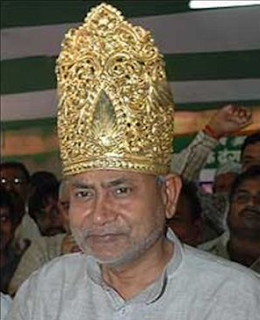 The winter session of parliament beginning tomorrow in all probability is likely to run into rough weather as a
The winter session of parliament beginning tomorrow in all probability is likely to run into rough weather as a
A resurgent opposition has decided to put the government on the mat over religious intolerance which is periodically finding space in foreign press also soon after the parting shot of Mr Modi’s “friend” Barack (Obama) during his visit this January when he warned India not to stray from its constitutional commitment to allow people to freely "profess, practice and propagate" religion. And President Obama followed this up after few days by saying Mahatma Gandhi would have been shocked at the acts of intolerance in the country famed for its diversity when he addressed the annual National Prayer Breakfast meeting.
A report by rating agency Moody’s also pilloried the government over growing intolerance in the country as it cautioned Prime Minister Modi that he risked losing his “domestic and global credibility” if BJP controversialists were not reined in.
An annual report of US Commission on International Religious Freedom (USCIRF) has also been scathing and censured India for “religious intolerance against Christians and Muslims by right-wing Hindu groups since 2014 elections.” It has also put India again in the Tie II group of 10 countries under its watch list, which is a tad lower than Tier I watch list of countries like Myanmar, Pakistan, Sudan, Iraq etc.
A section of intelligentsia and so-called “pseudo secularists” in the country have been flagging their concerns on the issue, with some returning their Sahitya Akademi awards. They have been joined in their protest by eminent personalities from different fields, but, sadly, the government has been cold to their concerns. The inane remarks from some ministers and senior members of the BJP have only fuelled the fire with the top leadership of the party found wanting in reining in fringe elements.
With both the government and the Opposition trading barbs tediously for months together, one hopes the winter session of parliament does not go the same way as the last monsoon session which was a near wash-out. In the last monsoon session, only eight bills were introduced. The government had listed only 11 bills for consideration and passing during the then session. However, only one bill – Delhi High Court (Amendment) Bill, 2014, was passed by the Lok Sabha which had got the nod of the Rajya Sabha in the previous session. The session witnessed the lowest number of bills being passed since the Winter Session 2010. If the productivity of Lok Sabha was 48 percent, it was a shameful 9 percent in the Rajya Sabha.
It is heartening to note that two senior ministers – Arun Jaitley and Venkaiah Naidu – have tried to reach out to the Opposition in recent days to seek its support for key economic reforms. The country will be indebted to parliament if both the government and the Opposition break the logjam and do for what they have been chosen by the people of the country.
Billed as the biggest reform in India since independence in 1947, the GST can add up to 2 percentage points to the growth of Asia’s third largest economy. The bill, pending nod from the Rajya Sabha, can give a necessary fillip as far as trade is concerned. Equally important will be the role of the Congress party, which itself had mooted the bill. Setting aside political differences, all the parties should sit together and find ways to pass the bill in the interests of the nation. The world is eyeing this legislation. For, it will signal to the global community and investors that India is serious on economic reforms.
But for that to happen, bitter acrimony between the government and opposition forces should end. The government will have to take the first step as it is its duty to ensure the smooth functioning of parliament. While the BJP has comfortable majority in Lok Sabha, it needs the support of the opposition Elders in the passage of key legislations. The Bihar fiasco has put paid to the ambitions of the BJP which was eyeing to increase its numbers in Rajya Sabha in the coming years. Therefore, the BJP and its allies will do well to bring down the political temperature by a few notches and strike a conciliatory deal with the Opposition if they want to implement their agenda of good governance and next generation of reforms.







